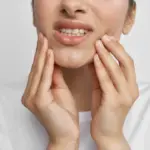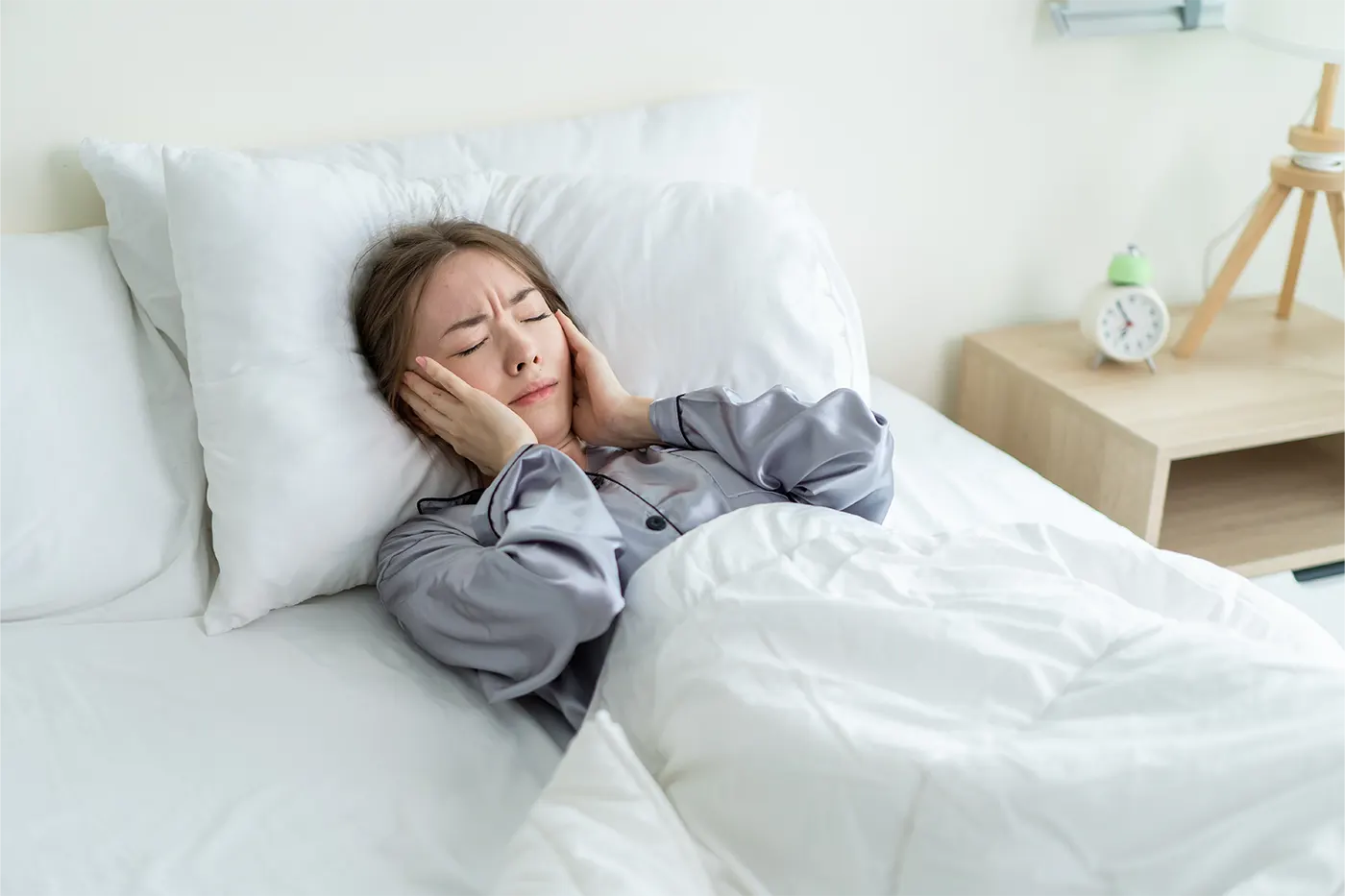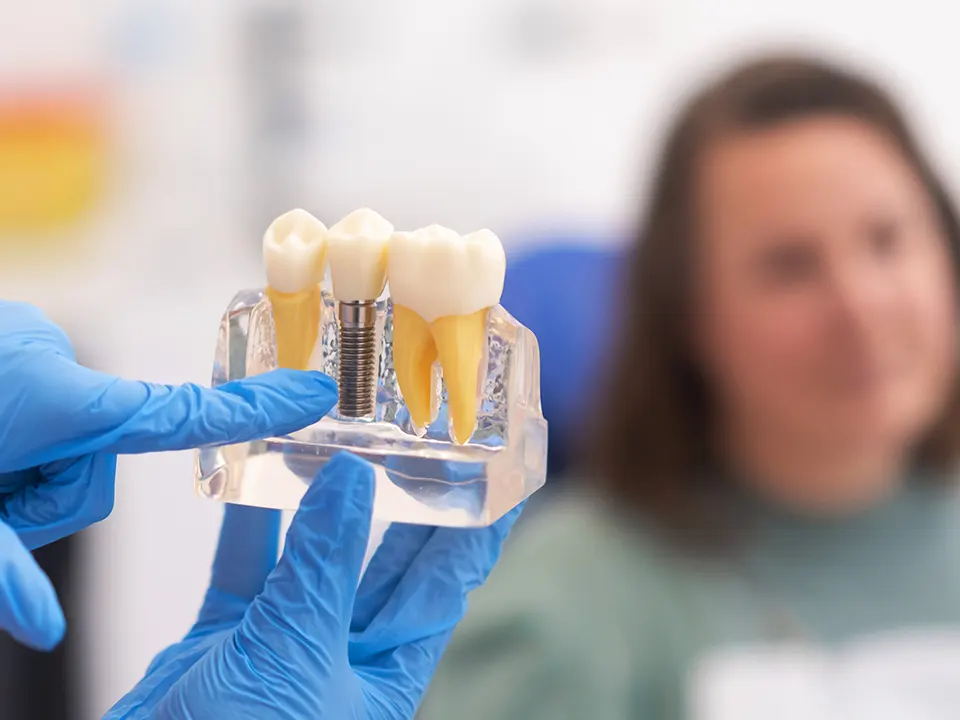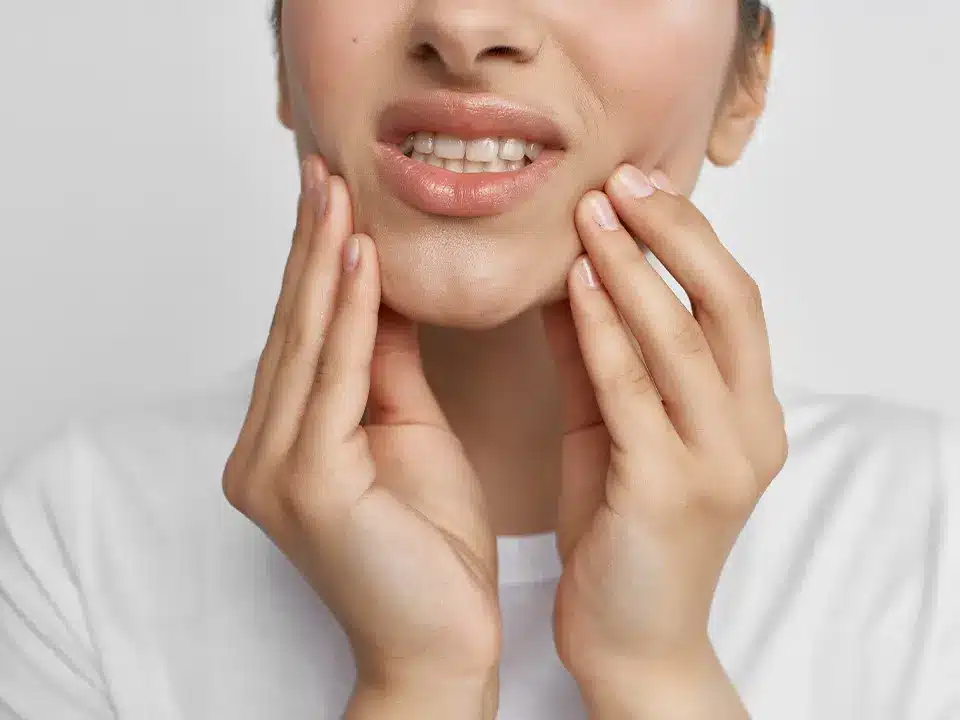
5 Signs You Might Be Grinding Your Teeth at Night
August 18, 2025
What You Can Eat with Invisalign (and What to Avoid)
October 14, 2025Do you wake up with a sore jaw or a dull headache and wonder what happened overnight? You may be clenching your teeth while you sleep. Dentists call it teeth grinding bruxism, and it affects both children and adults. Some people grind only at night, while others clench during the day without realizing it. Because the signs can be subtle at first, many people do not know they grind until their dentist notices worn-down teeth or a sleep partner hears the sound. Recognizing teeth grinding symptoms early can make a big difference in protecting your teeth, your jaw, and your overall health.
Common Teeth Grinding Symptoms
Here are some of the most common teeth grinding symptoms to watch for:
- Morning jaw pain or stiffness in your jaw muscles or jaw joints
- Frequent headaches, especially when you wake up
- A worn, chipped, or flattened look on your upper and lower teeth
- A sleep partner telling you they hear grinding or clenching sounds at night
- Teeth that feel loose or look shorter than before
- Soreness in the temporomandibular joints (TMJs) in front of your ears
- Grinding linked to stress or conditions like attention deficit hyperactivity disorder (ADHD)
If these symptoms sound familiar, you may be experiencing bruxism—even if you do not notice yourself doing it.
What Causes Teeth Grinding Symptoms?
There is not a single cause, but several common risk factors play a role. Stress and anxiety are major triggers, and many people clench their teeth without realizing it when dealing with tension. Obstructive sleep apnea and other sleep disorders are also linked to bruxism, since interruptions in breathing can trigger the body to clench. Certain medications, such as those for mood or attention, may contribute as well.
Some people notice that they clench while concentrating—during long drives, while studying, or even when listening to music. Children and adults with ADHD may also be more likely to clench or grind, especially during stressful or demanding tasks. Jaw alignment issues or crooked teeth can add extra strain, making grinding more likely.
How Grinding Affects Daily Life
At first, you may not think grinding is a big deal. But over time, the symptoms of bruxism can spill into your everyday routine. You may wake up tired even after a full night’s sleep. Eating chewy foods can feel uncomfortable. Tension may spread from the jaw into the neck or shoulders, making it harder to focus. Some people feel embarrassed if their sleep partner mentions hearing them grind their teeth at night. These daily annoyances can build up, which is why catching the problem early matters.
Why You Should Not Ignore the Symptoms
It may seem harmless, but ignoring teeth grinding symptoms can lead to bigger dental and health issues:
- Enamel wear can leave teeth thin, uneven, or more sensitive
- Constant pressure on the temporomandibular joints can cause long-term jaw pain
- Teeth may become prone to cracks and fractures
- Fillings, crowns, or other dental work can loosen or break
- Untreated bruxism can change the way your bite fits, making chewing less comfortable
In short, bruxism is more than a noisy habit. It is a condition that needs attention before it causes lasting problems.

How to Manage Teeth Grinding Symptoms
The good news is that there are effective ways to manage or reduce teeth grinding symptoms.
- Mouth guard: A custom night guard is one of the most reliable treatments. Worn while you sleep, it cushions your teeth and TMJs against clenching or grinding. While it will not stop the habit entirely, it prevents damage and reduces strain.
- Stress management: Relaxation can make a real difference. Try deep breathing, stretching, or journaling before bed. A warm shower or calming routine signals your jaw muscles to loosen up.
- Regular dental visits: Seeing your dentist regularly is key. They can spot early wear, adjust a mouth guard, and suggest jaw exercises before things worsen.
- Sleep disorder treatment: If you have obstructive sleep apnea or another condition, addressing it often reduces grinding episodes and improves your overall rest.
- Self-awareness: During the day, check in with yourself. Your upper and lower teeth should only touch when chewing. If you notice clenching, gently relax your jaw. Setting reminders or sticky notes can help you build the habit.
Consistency matters. Small changes add up to healthier teeth and less jaw tension.
What to Expect at Your Appointment
When you visit the dentist about teeth grinding symptoms, the process is straightforward. Your dentist will:
- Ask about your daily habits and any signs you have noticed
- Examine your bite, jaw muscles, and upper and lower teeth for wear
- Check your temporomandibular joints for soreness or clicking
- Look for side effects such as tooth sensitivity or loose dental work
- Recommend treatment, which may include a mouth guard, jaw relaxation strategies, or referrals for a sleep study if a sleep disorder is suspected
Some patients also benefit from short physical therapy for the neck and jaw to ease muscle tension. The goal is always the same: reduce strain, protect enamel, and help you sleep more comfortably.
Caring for Your Teeth and Jaw
Teeth grinding symptoms can be easy to miss, but catching them early makes treatment simpler and prevents long-term damage. From wearing a night mouth guard to reducing stress and keeping up with regular dental visits, there are plenty of ways to protect your teeth and jaw.
Do you think you may be grinding your teeth? Book an appointment with Regehr Family Dental today. We can check for signs of bruxism, help protect your smile, and make sure your teeth and jaw stay healthy for the long run.



